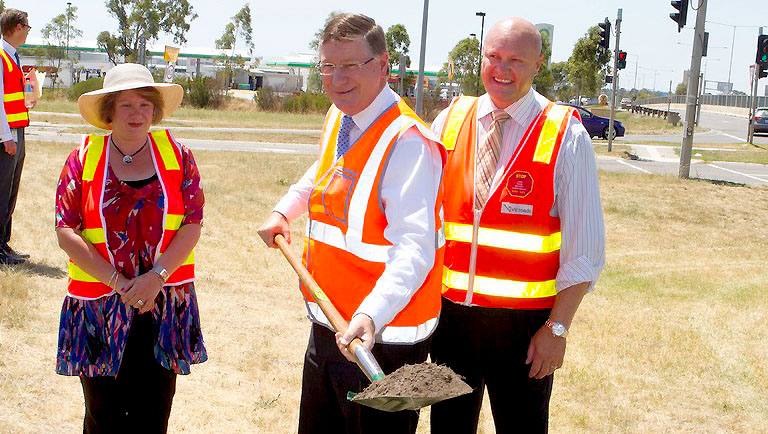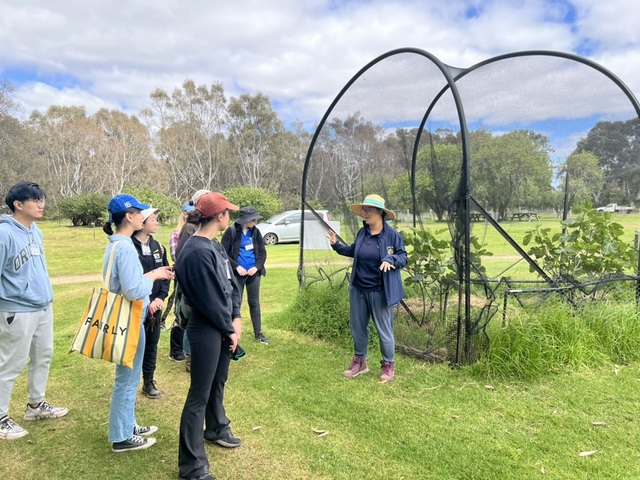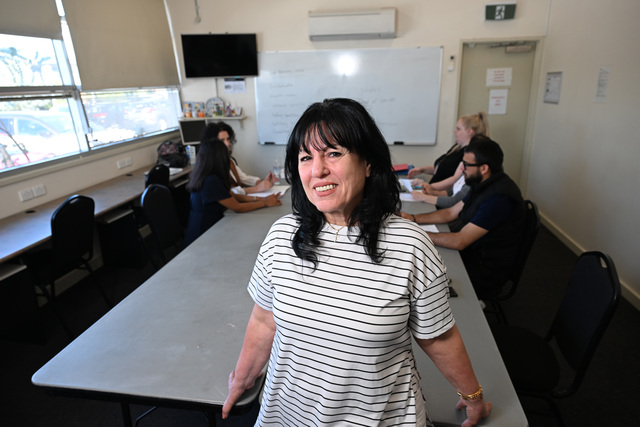Premier Denis Napthine visited Epping last week for his first tour of the site earmarked for relocation of Melbourne’s wholesale fruit, vegetable and flower markets.
He was inspecting progress after the completion of a $313 million central market building, with construction expected to start soon on 100,000 square metres of warehousing – the final piece of the jigsaw.
“This new warehousing, three times what is available at the current Footscray Road site in West Melbourne, will enable tenants to grow and innovate their businesses and gain significant efficiencies for their businesses,” Dr Napthine said.
But the relocation has been marred by discontent, with growers and wholesalers last year challenging government contracts they said offered smaller premises for dearer leases and trading floor licences.
Before visiting the new Epping site, the Premier also announced the start of works to widen Cooper Street, a $7.5 million project that will add an extra lane in both directions between Hume Freeway and Edgars Road.
“Cooper Street currently handles 38,000 vehicles a day and this is predicted to increase to 58,000 by the early 2020s,” Dr Napthine said.
“We are also improving Cooper Street’s connections with the Hume Freeway and the wholesale market, with extra ramp lanes at the Hume Freeway interchange and traffic light adjustments at the market’s access points.”
Major Projects Minister David Hodgett said the road upgrade would help support extra demand on Cooper Street driven by the growth in Melbourne’s north.
But such reassurances are unlikely to appease Whittlesea council’s concerns over gridlock conditions around the O’Herns and Edgar roads interchanges with the Hume freeway, nor claims that traffic conditions and lack of connectivity are discouraging business investment.
“Strategic land-use plans and developer contribution plans that rely on O’Herns Road and Edgars Road to provide access and employment for the area have been approved by the state government and implementation of those plans is under way, but with minimal state government investment,” the council website states.

















